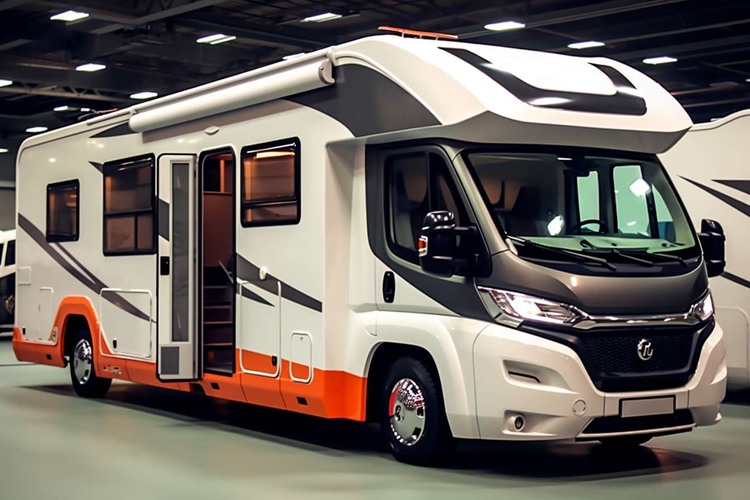Compact Camper Vans: Comfort, Convenience, and Travel Options
Compact camper vans are becoming a popular choice for people who want the freedom of travel without the stress of complicated planning. They combine essential comforts like a bed, small kitchen, and storage into a manageable vehicle that can be used for weekend getaways or longer adventures. Retirees are discovering that these vans make it easier to explore closer to home while avoiding the high costs and logistics of international travel. Younger travelers and digital nomads are also turning to camper vans as a way to blend mobility with daily routines, whether for work or leisure. With thoughtful design, affordability, and flexibility, compact camper vans provide an option that adapts to many lifestyles in 2025.

Compact camper vans have revolutionized the way people experience road travel, offering remarkable versatility in a manageable package. Unlike their larger motorhome counterparts, these nimble vehicles provide essential living amenities without sacrificing drivability or fuel efficiency. Their growing popularity stems from their ability to serve multiple purposes—from weekend escapes to extended adventures—while remaining practical for everyday use. As more travelers seek flexible accommodation options that don’t require towing or navigating oversized vehicles, compact camper vans have emerged as an ideal solution combining transportation and accommodation in one efficient package.
Senior-Friendly Camper Van Features for Enhanced Accessibility
Many compact camper van manufacturers have recognized the importance of designing vehicles that accommodate travelers of all ages. Senior-friendly features often include lower entry steps with sturdy grab handles for easier access, swivel seats that simplify movement between the cabin and living area, and ergonomic bed designs that don’t require climbing or awkward movements. Enhanced lighting systems help address vision concerns, while easy-to-operate control panels eliminate the frustration of complex systems. Some models feature specially designed bathroom facilities with grab bars and shower seats, providing additional security and comfort.
Storage accessibility is another critical consideration, with many senior-friendly designs incorporating lower cabinets and pull-out drawers that minimize the need for stretching or bending. Climate control systems with simple, intuitive controls ensure comfortable temperatures regardless of outside conditions. Additionally, many compact camper vans now offer optional mobility aids like portable ramps or lifts that can be easily stored when not in use, making these vehicles increasingly accessible to travelers with varying mobility needs.
Affordability and Maintenance Considerations for Compact Vans
The financial aspects of owning a compact camper van extend beyond the initial purchase price. New compact camper vans typically range from $60,000 to $130,000 depending on the base vehicle and customization level, while well-maintained used models can be found starting around $30,000. Operating costs include fuel efficiency—generally 18-25 mpg for modern diesel models—insurance premiums averaging $1,000-$1,800 annually, and routine maintenance costs that are often comparable to standard passenger vans.
Maintenance requirements for compact camper vans involve both the base vehicle systems and the living amenities. Regular service intervals typically mirror those of the underlying van platform, with additional attention needed for specialized components like water systems, propane appliances, and electrical systems. Many owners find that preventative maintenance schedules help avoid costly repairs, particularly for water damage or electrical issues. Storage considerations during off-seasons can significantly impact long-term maintenance costs, with climate-controlled options providing the best protection against common issues like mold, battery degradation, and plumbing damage.
Prices, rates, or cost estimates mentioned in this article are based on the latest available information but may change over time. Independent research is advised before making financial decisions.
Weekend and Long Trip Planning with Compact Camper Vans
Effective trip planning differs significantly between weekend getaways and extended journeys in compact camper vans. Weekend trips benefit from simplified preparation—minimal packing, pre-stocked essentials, and destinations within comfortable driving distance. Many weekend travelers prefer campgrounds with amenities that complement their van’s limitations, such as shower facilities or electrical hookups. Route planning for short trips can prioritize scenic drives and specific destinations rather than focusing on overnight accommodations.
Long-term travel requires more strategic preparation, including considerations for laundry, resupply points, and varied camping options to manage costs. Extended travelers often alternate between campgrounds, public lands, and occasional urban parking to balance amenities with budget constraints. Water and power management become critical on longer journeys, with many experienced travelers installing additional capacity or alternative power sources like solar panels. Meal planning also differs substantially, with long-term travelers typically incorporating more cooking from scratch rather than relying on pre-prepared foods. Both travel styles benefit from the compact camper van’s versatility, though they demand different approaches to planning and resource management.
Camper Vans for Remote Work: Creating a Mobile Office
The rise of remote work has transformed compact camper vans into viable mobile offices for digital nomads. Creating a functional workspace within these confined areas requires thoughtful design considerations. Power management becomes essential, with many remote workers upgrading their vans with enhanced battery systems, solar panels, and inverters capable of running laptops and other equipment. Connectivity solutions typically include cellular boosters, multiple carrier options, and sometimes portable satellite internet devices for truly remote locations.
Ergonomics present unique challenges in compact spaces. Convertible workstations—tables that adjust for different positions or fold away entirely—help maximize limited space. Some remote workers install permanent desk solutions with proper seating to maintain productivity and physical comfort during working hours. Storage solutions for technology must protect equipment from temperature extremes and physical damage while traveling. Successful remote workers in camper vans typically establish routines that separate work and leisure time, despite the blurred physical boundaries, often utilizing public spaces like libraries or cafes to supplement their mobile setup and provide social interaction during extended work periods.
Comparing Popular Compact Camper Van Models
The compact camper van market offers diverse options catering to different needs and preferences. The following comparison highlights some popular models and their distinctive features:
| Model | Base Vehicle | Key Features | Estimated Price Range |
|---|---|---|---|
| Winnebago Solis | Ram ProMaster | Pop-top option, wet bath, solar power prep | $95,000-$125,000 |
| Thor Sequence | Ram ProMaster | Murphy bed design, spacious bathroom | $110,000-$140,000 |
| Pleasure-Way Ontour | Ram ProMaster | Simplified design, excellent fuel economy | $90,000-$115,000 |
| Airstream Interstate | Mercedes-Benz Sprinter | Luxury finishes, advanced safety features | $175,000-$210,000 |
| Storyteller Overland MODE | Mercedes-Benz Sprinter | Off-grid capabilities, versatile sleeping | $150,000-$180,000 |
| Hymer Aktiv | Ram ProMaster | European design, efficient use of space | $100,000-$130,000 |
Prices, rates, or cost estimates mentioned in this article are based on the latest available information but may change over time. Independent research is advised before making financial decisions.
Each model offers distinct advantages depending on travel style and priorities. The Winnebago Solis provides excellent value with thoughtful features for weekend travelers, while the Airstream Interstate caters to those seeking premium appointments and sophisticated technology. The Storyteller Overland MODE emphasizes off-grid capability with robust power systems and all-season insulation. For those prioritizing simplicity and fuel efficiency, the Pleasure-Way Ontour offers a streamlined approach with fewer complex systems to maintain. Thor’s Sequence maximizes interior space through clever design elements, while the Hymer Aktiv brings European space-efficiency concepts to the North American market.
Compact camper vans continue to evolve with innovations in space utilization, energy efficiency, and versatility. Their ability to serve as both everyday transportation and comfortable travel accommodation makes them an appealing option for diverse travelers. Whether used for weekend escapes, extended journeys, or as mobile workspaces, these vehicles offer a compelling balance of comfort, convenience, and practicality that larger RVs cannot match. As technology advances and designs improve, compact camper vans will likely remain at the forefront of the evolving landscape of mobile living and travel.




